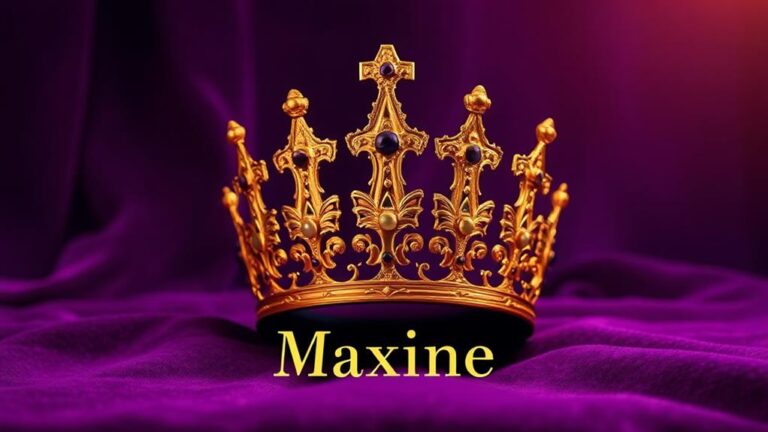Mary Name Meaning in the Bible
The name Mary in the Bible, derived from the Hebrew name Miriam, encompasses a multifaceted meaning that spans “beloved,” “bitter,” and “rebellious,” reflecting its Egyptian and Hebrew origins. The Egyptian root *mry*, meaning “beloved” or “love,” aligns with Mary’s revered status as the mother of Jesus, while Hebrew associations with *mar* (bitter) and *yam* (sea) evoke the hardships and spiritual resilience embodied by biblical Marys. This rich etymology underscores the profound spiritual significance of Mary’s name, woven into the fabric of Christian tradition and biblical narratives. Exploring this name further reveals the intricate tapestry of faith, hope, and obedience it represents.
Key Takeaways
- Multifaceted Origins: Mary’s name has roots in both Hebrew (Miriam) and Egyptian languages, with meanings such as “beloved,” “bitter,” and “rebellious.”
- Hebrew Etymology: The Hebrew form *miryam* can be associated with words like *mar* (bitter) and *yam* (sea), reflecting the Israelites’ experience in Egypt.
- Egyptian Influence: Some scholars link Mary’s name to the Egyptian word *mry*, meaning “beloved” or “love,” aligning with Mary’s revered status in Christian tradition.
- Biblical Significance: Mary’s name in the New Testament, particularly as the mother of Jesus, carries deep theological importance, symbolizing divine favor and redemption.
- Interpretative Variations: The name Mary has been interpreted in various ways, including “drop of the sea,” “star of the sea,” “myrrh,” and “one beloved by Yahweh,” each adding depth to its biblical significance.
Biblical Origins of Mary’s Name

Linguistic analysis reveals that Miriam, the original form of Mary, may be linked to several Egyptian and Hebrew roots. Some scholars connect it to the Egyptian word *mry*, which means “beloved” or “love,” while others argue that it is associated with Hebrew words such as *mar* (bitter) and *yam* (sea). This multifaceted etymology underscores the complex and rich heritage of the name and reflects the virtues of hope and faith found in biblical narratives, similar to the symbolism of names like Evelyn, which also embody renewal and divine purpose. Understanding the symbolism and significance of names allows us to appreciate their deeper meanings in a spiritual context.
Historical context further illuminates the significance of Mary’s name. In the Old Testament, Miriam, the sister of Moses and Aaron, was a prophetess and a leader, demonstrating strength and faith during challenging times. As Christianity spread, the name evolved into Greek forms like Mariam and Maria, which were used in the New Record.
The Latin and European adaptations of Maria and Marie further contributed to the widespread use of the name Mary.
Understanding the linguistic origins and historical context of the name Mary provides a deeper appreciation for its significance in Christian tradition.
Symbolic Interpretations of Mary
The symbolic interpretations of Mary’s name are deeply intertwined with its linguistic origins and historical context. In the domain of Marian devotion, the name Mary has evolved to encompass a multitude of symbols that reflect her roles and attributes, particularly her virgin motherhood. The symbolism surrounding Mary resonates with the themes of spiritual growth and divine guidance, as the biblical meaning of 123 captures the essence of unity and divine perfection, which can also be associated with Mary’s role in the Holy Trinity.
- The Lily: Symbolizing purity and chastity, the lily is a common representation of Mary, particularly in the Annunciation scene. It underscores her immaculate conception and perpetual virginity before, during, and after childbirth.
- The Rose: The rose is associated with Mary as a symbol of prophecy and sacrifice, reflecting the blood shed by Christ. It also represents her as the queen of virtues, paralleling her with the rose as the queen of flowers.
- The Fleur-de-Lis: Emphasizing life, light, and perfection, the Fleur-de-Lis is a definitive symbol of the Holy Trinity and Mary. It synthesizes the iris and Madonna lily, symbolizing purity and her connection to the divine.
- The Fruitful Vine: This symbol represents Mary’s fruitful virginity, as she bore fruit (Jesus Christ) while remaining a virgin. It highlights her role as the mother of the divine and her contribution to the fruitfulness of the Christian community.
These symbols enrich our understanding of Mary’s name and its spiritual significance, reflecting key aspects of her majestic role in Christian theology.
Mary in Christian Tradition

In Christian tradition, Mary holds a revered and multifaceted role that extends beyond her historical figure as the mother of Jesus. Her significance is deeply rooted in the biblical narratives and has evolved through centuries of theological interpretation and veneration. Mary is often regarded as the “Virgin Mother,” a title that underscores her unique role as the bearer of God’s son, Jesus Christ. Symbolically, her name resonates with themes of resilience and divine favor, akin to the qualities attributed to names like Ashley, which embody strength and endurance symbolizes strength and resilience.
This maternal figure is not merely symbolic but fundamentally integral to the Christian faith. Mary’s obedience and humility in accepting the divine plan are central to her theological importance. She is seen as the second Eve, whose obedience counteracts the disobedience of the first Eve, thereby participating in the redemption of humanity.
Mary’s role is further emphasized in her intercessory powers, with many Christians believing in her ability to mediate between humanity and God. This belief is reflected in various devotions and prayers, such as the Rosary, which highlight her intervention on behalf of believers.
Through these aspects, Mary emerges as a pivotal figure, embodying the virtues of faith, humility, and maternal love, and serving as a model for Christian devotion and discipleship.
Etymology and Cultural Significance
Mary’s name has a rich etymology, with its origins spanning both Hebrew and Egyptian languages. The name Miriam, from which Mary is derived, is believed to have multiple interpretations, each carrying significant cultural and historical connotation.
Etymological Insights:
- Hebrew and Egyptian Roots: The name Mary has roots in both Hebrew (“Miriam”) and Egyptian languages, suggesting a complex and multifaceted origin.
- Variety of Interpretations: The name Mary can be understood as “beloved,” “bitter,” or “rebellious,” reflecting different aspects of human experience and biblical themes.
Understanding the etymology and cultural significance of the name Mary provides a deeper appreciation for its enduring impact on Christian tradition and its continued relevance in contemporary settings.
Historical Context:
In the Old Scripture, Miriam, Moses’ sister, is a key figure, embodying leadership and faith. This historical context shapes the significance of the name Mary in Christian tradition.
Linguistic Analysis:
The Hebrew root *mr* can signify “bitter” or “rebellious,” while the Egyptian influence suggests a meaning of “beloved,” highlighting the depth and diversity of linguistic origins.
Mary’s Role in Biblical Narrative**

Shifting from the etymological and cultural significance of Mary’s name to her role within the biblical narrative, we find that her presence is deeply intertwined with pivotal moments in the New Scripture. As the mother of Jesus, Mary embodies a profound mother figure, symbolizing divine intervention and underscoring God’s plan for human salvation. Her acceptance of God’s will reflects the qualities associated with names like William, representing unwavering commitment and spiritual resilience, as seen in the biblical principles of protection.
Mary’s role begins with the Annunciation, where she accepts the angel Gabriel’s message with obedience and humility. Her visit to Elizabeth, her kinswoman and the mother of John the Baptist, further underscores her role in preparing the way for God’s redemption.
Throughout Jesus’ life, Mary is present at pivotal events such as the Nativity, the flight to Egypt, and the Passover visit to Jerusalem when Jesus was 12 years old. Her presence at the cross, where she is entrusted to the disciple John, and her subsequent devotion to prayer after Jesus’ ascension, highlight her unwavering faith and dedication.
Mary’s obedience and trust serve as a model for Christian discipleship and devotion, demonstrating her integral role in the narrative of redemption.
Frequently Asked Questions
Is Mary a Common Name in Modern Times?
Mary’s cultural significance and historical trends indicate a decline in popularity. Once the most common female name in the US from 1880 to 1961, it ranked 135th in 2022, reflecting shifting naming preferences and increased individuality.
How Do Various Languages Spell or Translate the Name Mary?
Ironically, a name as timeless as Mary has myriad faces. Across cultures, it transforms into Maria, Marie, Mariam, Miryam, and more, reflecting linguistic differences while retaining its profound Biblical significance, a tribute to its enduring global appeal.
Why Does the Bible Have Multiple Characters Named Mary?
The Bible features multiple characters named Mary due to its historical context, where naming conventions often referenced virtues or figures from tradition. Cultural influences and biblical significance also contributed to the repetition of this name across different characters.
Is the Name Mary Associated With Specific Virtues or Traits?
In a paradox of humility and grandeur, Mary’s name is synonymous with virtues of profound humility, lively faith, and blind obedience, symbolizing her pivotal role in Christianity as a model of devotion and selflessness, inspiring freedom in spiritual pursuit.
How Popular Was the Name Mary in Historical vs. Current Times?**
Historically, Mary was the most popular girls’ name in the US from 1800 to 1961, embodying Christian virtues and symbolism. However, cultural changes and shifting naming trends have led to its decline, with Mary now ranking 135th in US births.
Names Reflecting Grace and Strength
- Mackenzie Name Meaning in the Bible
- Michael Name Meaning in the Bible
- Mary Name Meaning in the Bible
- Mia Name Meaning in the Bible
- Mark Name Meaning in the Bible
Conclusion
The biblical name Mary, derived from the Hebrew name Miriam, embodies a rich tapestry of meanings, including “beloved,” “bitter,” and “rebellious.” Its Egyptian origins and association with myrrh add layers of symbolic significance. As the name of Jesus’ mother and several other New Sacred Writings figures, Mary represents faith, leadership, and devotion. With over 40 occurrences in the New Sacred Writings, the name Mary is a testament to its enduring spiritual and cultural relevance, a name that has inspired countless generations with its profound meanings and associations.






